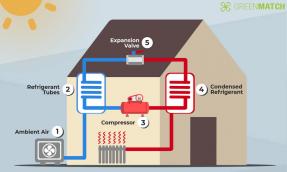The TPP In A Nutshell – Too Risky for the Environment


The Trans-Pacific Partnership (TPP) is one of the most ambitious free trade agreements ever proposed. In 2005, a similar deal, the P4 trade agreement was crafted by Brunei, Chile, New Zealand and Singapore. The P4 removed tariffs on most of the goods traded between these nations and also committed them to cooperate on wider issues such as employment practices, intellectual property and competition policies. The TPP, on the other hand, involves 12 countries: the US, Japan, Malaysia, Vietnam, Singapore, Brunei, Australia, New Zealand, Canada, Mexico, Chile and Peru, and it aims to deepen economic ties, slash tariffs, and foster trade between these nations to boost growth. Member countries are hoping to foster a closer relationship on economic policies and regulation--the agreement is rumored to produce a single market between member nations, a relationship similar in nature to the EU. Most goods and services are included in the deal, yet not all tariffs (taxes on imports) will be removed immediately, and some will take longer than others. All in all, over 18,000 tariffs would be affected by the TPP. Many claim that the deal is a remarkable achievement given the very different approaches and standards within each member country. But the deal seems to forget one crucial factor: our planet is in climatic trouble.
Over the past decade we have seen increasing incidences of widespread deforestation, destruction of the world’s fisheries, destabilization of world food supplies, communities dealing with extreme weather events and sea level rise, and so on. But the escalation and the immediacy of these costs have brought about the increasing global motivation to combat climate change and other environmental issues. This is why we’re seeing deals like the COP21 coalesce; however, this is not enough, the world needs to take stauncher action. Nations need to take action to create strong climate policies, ambitious environmental laws, and decisive governmental action immediately. Though this action is desperately needed, nations continue to invest in bilateral investment treaties (BITs) and free trade agreements (FTAs), which restrict the ability of governments to set policies in the interest of the public and the environment. While foreign investment can be an important driver of economic development, our current investment rules go too far in granting broad privileges to corporations at the risk of the public welfare and the environment. Currently, many fear or believe that the most harmful effects of these investment rules will result if the TPP is put into action.
Environmentalists are profoundly upset with the TPP’s provisions on environmental regulation. A joint analysis by the Sierra Club, World Wildlife Fund and National Resources Defense Council found the TPP to be a step backward from the P4 agreement. The TPP takes a softer approach on the environment, the groups argue, requiring only that signatories "affirm [their] commitment" to uphold environmental regulations, allowing countries to avoid a more demanding legal standard. The TPP also does not include a system to address complaints that a signatory country has violated an environmental rule, and has instead replaced it with an arbitration system that will likely be met with abuse, as it is too open to interpretation. Top environmental criticisms of the TPP include the following:
• Unrestricted Rights For Corporations. The TPP will include provisions that give corporations the right to sue a government for unlimited cash compensation over nearly any law or policy that a corporation claims will reduce its profits. Using similar rules in other free trade agreements, corporations such as Exxon Mobil and Dow Chemical have already launched over 600 cases against more than 100 governments. Dozens of cases attack common-sense environmental laws and regulations, such as regulations to protect communities and the environment from harmful chemicals or mining practices. Many claim that these investment rules will have the greatest negative impact on the environment and public safety.
• Private Negotiations. The TPP negotiations took place in private where public input was put aside in favor of corporate input. More than 600 corporate advisors worked to shape the agreement while the public was left unaware.
• Threat to Nature and Wildlife Conversation. Rather than prohibit commercial whaling and shark fin trade, which are two huge environmental issues in TPP member nations like Japan and Singapore, the TPP will not include a sufficient enforcement mechanism to require member countries to stop these harmful practices. The deal will also likely fall short of prohibiting trade in illegally taken timber and wildlife, and it does not even mention the words “climate change.”
• Risk of Increased Fracking. The TPP may allow for significantly increased exports of natural gas without the adequate protections and review processes necessary to protect the American public. This would likely mean an increase of hydraulic fracturing, or ‘fracking,’ the dirty energy process that dislodges gas deposits from shale rock formations. This potential shift would also likely cause an increase in natural gas and electricity prices, which would impact consumers, manufacturers, workers, and increase the use of coal power—clearly a step in the wrong climate change direction.
By creating a system that privileges corporations’ bottom lines over the well being of communities and the environment, the TPP could have seriously negative global environmental consequences if passed. However, for the agreement to pass, it will need to be signed and then ratified by all 12 signatories, which is no small feat. Details of how the deal will be implemented will be argued out in the individual countries' legislatures. In the US, the TPP will come before Congress this upcoming presidential election year, which means it is likely to turn into a major political discourse for both parties. Yet, Congress has also granted President Obama "fast-track" authority over the deal, which means lawmakers are only allowed to either reject the deal or ratify—not amend it or debate. Thus, moving forward we could either see a monumental trade alliance with severely negative environmental effects established or the downfall of potentially beneficial trade alliance. Yet, perhaps what the world really needs right now is an entirely new model of trade and investment, one that would provide governments the unfettered freedom and ability to preserve the environment, protect communities, and tackle climate change.
What do you think about the TPP? Do you think it will pass through Congress? Do you think we need a new system of trade and investment?
The full text of the TPP agreement - which runs to 30 chapters - has now been published and you can read it here:https://ustr.gov/trade-agreements/free-trade-agreements/trans-pacific-partnership/tpp-full-text" style="box-sizing: border-box; color: rgb(84, 148, 0); text-decoration: none; word-break: break-word; font-family: Verdana, Arial, sans-serif; line-height: 18px; display: block;" target="_blank">https://ustr.gov/trade-agreements/free-trade-agreements/trans-pacific-partnership/tpp-full-text</a>
- Filed Under: Environment
- Keywords : Environment, Oakland, California
- ( 3193 ) views

I am highly motivated college student with strong leadership, organizational, and interpersonal skills. I am very interested in political science, economics, and language and cultural studies, and I intend on pursuing each of these throughout my college experience. My goal is to finish out my undergraduate years with degrees in both international studies and economics with a minor in political science. I hope to work my way up through state government and then onto the national government to promote an environmental economic agenda that will bring the US closer to reaching its climate goals.
- ( 0 ) Ratings
- ( 13 ) Discussions
- ( 8 ) Group Posts
Reply/Leave a Comment (You must be logged in to leave a comment)
Connect with us!
Subscribe to our monthly newsletter:
Related Posts
-

-

-
 Green Things Summit Apr 17, 2024
Green Things Summit Apr 17, 2024 -

-



























Not a Member Yet? Register and Join the Community | Log in